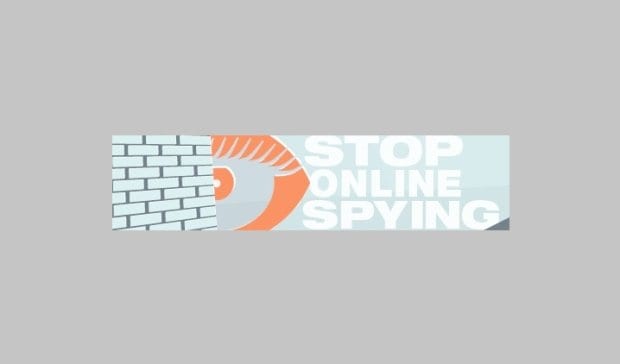More than 30 Canadian organizations, citizens, experts and businesses — including Xtra’s publisher, Pink Triangle Press (PTP) — have joined the Protect Our Privacy Coalition to safeguard the privacy of Canadians against the threat of government surveillance of online activities.
“We’re a very broad-based and diverse coalition of civil liberty groups, labour groups, small businesses, some right-leaning organizations, such as the Canadian Constitution Foundation and the Canadian Taxpayers Federation, who are coming together to say that Canadians need strong, transparent and enforceable privacy safeguards,” says David Christopher, communications coordinator at OpenMedia.ca, which is coordinating the coalition, launched Oct 10.
All of the members have signed on to a statement that reads, “More than ever, Canadians need strong, genuinely transparent, and properly enforced safeguards to secure privacy rights. We call on Government to put in place effective legal measures to protect the privacy of every resident of Canada against intrusion by government entities.”
“Obviously, this is being launched in the context in which we have the story about Canada spying on Brazil that will really shock Canadians,” Christopher says, referring to allegations that a Canadian security agency partnered with its American counterpart to spy on Brazil’s mines and energy ministry.
The coalition also launches amidst worries that Justice Minister Peter MacKay may reintroduce contentious aspects of Bill C-30, which would have required internet service providers to give police access to online communication without a warrant. The bill was withdrawn following widespread public outcry.
Christopher says MacKay may still implement those provisions through a joint federal-provincial-territorial report on cyberbullying released in July that, among other things, calls on the government to ensure police have the legal authority to access emails and text messages under the false messages, indecent phone calls and harassing phone calls provisions of the Criminal Code.
“I’d emphasize that many of the cyberbullying recommendations few would disagree with, but there is a specific concern about the potential reintroduction of ‘lawful access’ provisions — MacKay is refusing to rule this out,” Christopher says. “Hence our concern.”
In an Aug 17 interview with Postmedia News, MacKay reiterated his commitment to moving forward with the recommendations.
“We have not made the final determination on all of the recommendations,” he said. “We’ve examined them all and I can promise you this, we will be acting on some of them.”
Micheal Vonn, policy director at the BC Civil Liberties Association, derides the government’s attempt to include new technology under Criminal Code provisions that address older technology, such as telephones.
“You may remember the government arguing that knowing your IP address was the same as anything you could look up in the phonebook,” she says. “That’s a ludicrous argument, as it tells you something completely different. It allows you to be tracked across the internet in ways that your phone number never could.”
Vonn says the provisions are being introduced by stealth in “feel-good” laws.
“This is a reverse omnibus bill where a big program to conduct surveillance is smashed up into a hundred different pieces and you have to look for them in different pieces of legislation that the government will be bringing forward,” she says. “It makes it particularly difficult for democratic accountability, in part because for many people this is a very technical subject and following the bouncing ball in how these things connects is very labour-intensive.”
“We support the Protect Our Privacy Coalition in the hope that it will impede the government’s assault on the Charter of Rights and its creeping theft of our freedom to say what we think without fear of reprisal,” says PTP president and executive director Ken Popert.
Popert is especially concerned about the potential implications of online state surveillance on gay and lesbian people.
“The deeper issue here is that the whole politics of equality do not address the content of our sexual and emotional lives, and those are the things that remain vulnerable to surveillance abuse,” he says.
“There is a reason why Facebook has privacy settings and a reason why people use them,” he continues. “The very fact of what Grindr actually is would upset a lot of straight people if they understood it. It’s treated in the press as a humorous thing in a way but could be put to other purposes.
“Or suppose you say something that someone in the ministry of ‘X’ didn’t like and they could see all the people you connected with over the years and try to influence them without you knowing, or get information about you from them.”
Popert thinks the mere suggestion of surveillance could scare people into silence. “I think that the main goal of most surveillance systems that are known to exist, and enshrined in law, is to intimidate by the fact that they are there,” he says.
“Our government probably doesn’t have the technology to make use of the information they collect. It’s to intimidate,” he says. “If we are in a democracy, why would the government be spying on their population or threatening to spy on the population? We have a rhetorical democracy where we talk about things that we are not able to practise.
“I, first of all, hope we can encourage the people we reach out to with our publications or websites to take an interest in this issue,” he says, “because I’m sure the coalition will call people to act in some fashion.”
Christopher hopes to put the surveillance issue back on the national agenda when Parliament resumes Oct 16.
“It’s the perfect time to launch it because we know that people are concerned about Communications Security Establishment Canada and NSA surveillance, the possible reemergence of Bill C-30, and privacy issues in general,” he says. “This is a platform where all these different groups can take action from their own perspective and their actions and work with other groups to get our message out to as many Canadians as we can.”
For more information, go to stopspying.ca.

 Why you can trust Xtra
Why you can trust Xtra


